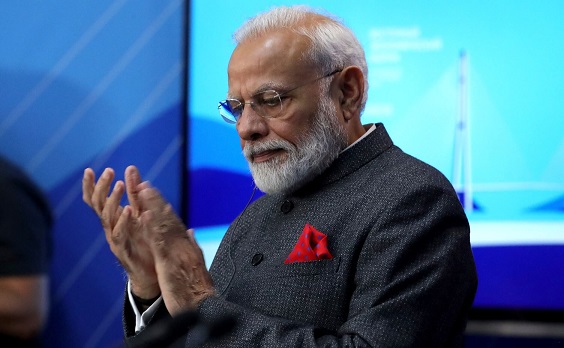Wouldn’t it be confusing if suddenly a day the Sun shall rise from the West? What if Bengalis would suddenly quit eating fish? How about a time when Kerala will cease to be God’s Own Country? It would be flabbergasting, isn’t it? This is exactly what has been happening from more than three weeks now in India where the Modi Government has entered into a phase of acute policy paralysis. This is the same government that otherwise rushes into making decisions like a duck to water. Demonetisation, implementation of the Goods and Services Tax (GST), Union Budget for 2019-20, the passage of the Citizenship Amendment Act (CAA), are just a few examples of this government’s functioning when decisions were taken at the blink of an eye with the consequences to be dealt later.
India’s lockdown to fight against the COVID-19 pandemic is among the most stringent in the world. Yet, its fiscal stimulus package rates amongst the worst. It is a general perception now across the world propagated and supported by the World Health Organization (WHO) as well as different governments that we will have to learn to live with the virus. This co-existence will go on until a vaccine becomes available or herd immunity is reached, whichever happens first. In light of this, the single-most-important benefit of a lockdown is to buy the government more time so that it can prepare better for when the economic activity resumes. This preparation encompasses the production of personal protective equipment in large numbers, framing the policies for social distancing when the economy is reopened, and laying down the guidelines regarding domestic and international travel, among other things. The government presently is just buying time by repeatedly extending the lockdown without preparing for the re-opening of the economy. There has also been no announcement about where and how the government is planning to use the funds collected under PM-CARES precisely because of the policy paralysis that the government is afflicted with. The first and foremost thing to remember amidst a war (any war, even this struggle against the pandemic) is to not lose nerves. With policy paralysis, the Modi Government has lost control of its nerves.
Even the numbers favor the careful reopening of the economy. Even if you accuse the government of not testing enough number of people, the deaths per million of the population stand at only about 2 in India compared to 242 in the United States and over 500 in Spain, Italy, and Belgium. It is a fact that until now (thankfully and hopefully it will continue to be so), India has escaped a full-fledged assault from the virus relative to most other large nations. Lockdown surely helped in this achievement but no lockdown can go on forever. The government must not continue to paint the devil on the wall to assume a wide array of power and fuel its sense of being omnipotent.
Again, the lockdown can only buy time. The economy will have to reopen. New cases of the virus will emerge. The key is to utilize the present time by preparing well for the post-lockdown period by establishing more quarantine centers, manufacture and disseminate masks among the poor in large quantities, and provide support to the MSMEs as well as other comatose industries like airlines and tourism. Else, the economic brunt of the lockdown will become unsustainable (already the case with many state governments) and more lives will be in danger because of the lack of economic resources when the lockdown will be lifted.
There has been a lot of talk about incentivizing the establishment of MSME industries to attract jobs and money in the coming months as many companies would move out of China as a backlash. But, the Modi Government is in a state of self-induced coma in which it is neither providing any stimulus to these industries that are rapidly dying from economic suffocation nor is it sympathizing with the labor workforce employed by them.
Since the lockdown began more than six weeks back, the otherwise loquacious prime minister has refrained from directly addressing laborers who are walking back to their hometowns in a state of misery. No advisory came from the prime minister asking the laborers to stay back wherever they are with the promise of providing them food and money. The government abdicated these responsibilities to the private entrepreneurs and various NGOs. This is highly uncharacteristic of the prime minister who has cultivated a strong image of enhancing the social and economic status of the poor. It is only now, after six weeks, that the government has started trains to transport them. Even now, laborers are walking hundreds of miles in scorching heat with no monetary support and are reduced to eating whatever they could find (which may even mean having a meal of rice and salt).
Amidst all this, the opposition finds itself in a curious position. It cannot advocate ending the lockdown since the government will hit back by retorting that the opposition favors industrialists over the lives of the poor. Nor can the opposition garner support among the poor multitude of voters by its current stance of proposing various economic policies to jumpstart the economy. This is because such pronouncements of policies by esteemed economists living abroad can only increase the number of Twitter followers, gain support from sections of the middle class, but mean nothing tangible to the multitude who have been resorted to walking back home after losing their livelihood or those who are incurring heavy losses in the agricultural sector. Furthermore, the prime minister is very adept and tossing over such “intellectual” opinions with negligence, contempt, or both.
The misery being caused to the migrant laborers is the one issue that the opposition can use to attack the government. Largely, it has missed the train on this one in the past four weeks. How very much important this issue is to Modi Government’s USP can be gauged from the fact that within hours of Congress pronouncing monetary support to buy train tickets for the returning laborers, the government reversed its erstwhile policy of making the laborers pay for themselves. It would really help the opposition a lot if instead of focusing heavily on interviewing various economists to frame policies (which anyway the opposition cannot implement beyond state boundaries), it would start interviewing migrant laborers, MSME owners, and farmers whose livelihood and entrepreneurship have been adversely impacted by the government’s policy paralysis. There is still time for the opposition parties to frame policies in the states where they have governments for supporting migrant labor and MSMEs in direct contrast to Modi Government’s policy paralysis. This Brahmastra will surely hit the bullseye (in this case the 56-inch chest) since Prime Minister Modi can never afford to ignore the voices of despair coming from the ground.

 Leadership in Turbulent Times
Leadership in Turbulent Times